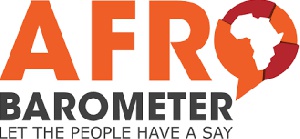The latest Afrobarometer report by the Center for Democratic Development (CDD) has revealed that 60 percent of the country’s youth would “somewhat support” or “strongly support” higher taxes to fund programmes to help them.
This is because the youth have identified unemployment as their major headache and would support any prudent move including high taxes to ensure that their future is secured and can also afford them the opportunity to meaningfully participate in economic development.
For them, the nation’s taxation system can be well structured to ensure that the current workforce would be able to fund prudent programmes to engage more of the youth in active ventures which would result in more people getting into the taxation bracket to generate more revenue for national development.
The report identified that job creation and education are citizens’ top priorities for additional government investment in youth development, and citizens are willing to pay more taxes to support programmes to help young people.
While citizens’ ranking of priorities for additional investment to help youth is consistent across key socio-demographic groups, urban and educated residents are more likely than their rural and uneducated counterparts to cite job creation and less likely to prioritize education. The priorities of young respondents differ very little from those of their elders.
A news released from the CDD noted that: “In Ghana, unemployment and exclusion from democratic processes and decision-making are blamed for leaving youth vulnerable to manipulation by political parties, which engage some of them in political violence. Although successive governments have, over the years, tried to address the youth’s needs through various social intervention programs aimed at skills training and job creation, the challenges persist.”
The report was emphatic that unemployment and education are the most important problems that young Ghanaians want the government to address, adding that, in surveys over the past decade, unemployment has consistently ranked No. 1 among the priorities of Ghana’s youth, with education a consistently in second or third position.
When Afrobarometer asked adults of all ages to cite the most important problems they want the government to address, infrastructure/roads was the most frequently cited priority with unemployment and education coming in second and third respectively.
However, unemployment and education are the most important problems that young Ghanaians, aged 18-35 years want the government to address. Young adults are 14 and 5 percentage points, respectively, more likely than seniors to cite unemployment and education as their top priorities
59 percent of the respondents said job creation should be the highest priority if the government could increase its spending to help the youth. According to the report, urban residents are more likely than their rural counterparts to cite job creation and less likely to prioritize education. Likewise, educated citizens are more likely to prioritize job creation – 69 percent among those with post-secondary education vs. 47 percent among those with no formal education – and less likely to prioritize investment in education.
Afrobarometer is a pan-African, nonpartisan survey research network that provides reliable data on African experiences and evaluations of democracy, governance, and quality of life. Seven rounds of surveys were completed in up to 38 countries between 1999 and 2018. Round 8 surveys in 2019/2020 are planned in at least 35 countries.
Click to view details



Business News of Tuesday, 18 August 2020
Source: thebftonline.com

















